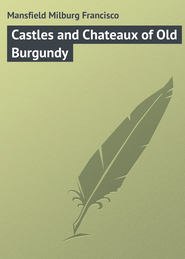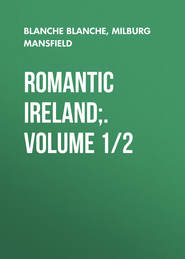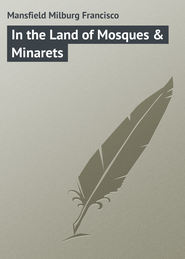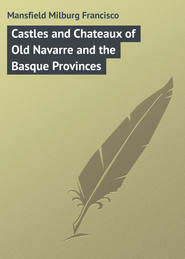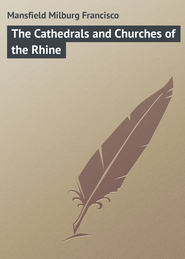По всем вопросам обращайтесь на: info@litportal.ru
(©) 2003-2024.
✖
The Automobilist Abroad
Настройки чтения
Размер шрифта
Высота строк
Поля
There is absolutely no question but that automobilism has brought about a great change in the hotel system of France. It may have had some slight effect elsewhere, but in France its influence has been enormous. The guide-books of a former generation did nothing but put an asterisk against the names of those hotels which struck the fancy of the compiler, and it was left to the great manufacturers of "pneumatiques" for automobiles to carry the scheme to a considerably more successful issue. Michelin, in preparing his excellent route-book, bombarded the hotel-keeper throughout the length and breadth of France with a series of questions, which he need not answer if he did not choose, but which, if he neglected, was most likely taken advantage of by his competitor.
Given a small chef-lieu, a market-town in France, with two competing establishments, the one which was marked by the compiler of this excellent road-book as having the latest sanitary arrangements, with perhaps a dark room for photographers, stood a much better chance of the patronage of the automobile traveller than he who had merely a blank against the name of his house. The following selection of this appalling array of questions, used in the preparation of the Guide-Michelin, will explain this to the full:
Is your hotel open all the year?
What is the price per day which the automobilist en tour may count on spending with you? (This is purposely noncommittal so far as an ironbound statement is concerned, being more particularly for classification, and is anyway a much better system of classification than by a detailed price-list of déjeuner, dîner, etc.)
What is the price of an average room, with service and lights? (Be it noted that only in avowed tourist resorts, or in the case of very new travellers, are the ridiculous items of "service et bougie" – service and lights – ever charged in France.)
Is wine included in your regular charges? (And it generally is except in the two above-mentioned instances.)
Have you a sign denoting adherence or alliance to the A. G. A.?
Have you a sign denoting adherence or alliance to the A. C. F.?
Have you a sign denoting adherence or alliance to the T. C F.?
Have you an arrangement with the Touring Club de France allowing members a discount of ten per cent.? (Some four thousand country hotels of France have.)
Have you a bath-room?
Have you modernized hygienic bedrooms?
Have you water-closets with modern plumbing? (Most important this.)
Have you a dark room for photographers?
Have you a covered garage for automobiles? (This must be free of charge to travellers, for two days at least, or a mention of the hotel does not appear.)
How many automobiles can you care for?
Have you a telephone and what is its number?
What is your telegraphic address?
What are the chief curiosities and sights in your town?
What interesting excursions in the neighbourhood?
This information is afterwards compiled and most clearly set forth, with additional information as to population, railway facilities, etc.
The annual of the Automobile Club de France marks with a little silhouetted knife and fork those establishments which deserve mention for their cuisine, and even marks good beds in a similar fashion. Clearly the makers of old-time guide-books must wake up, or everybody will take to automobiling, if only to have the right to demand one of these excellent guides. To be sure the same information might to a very considerable extent be included in the recognized guide-books; indeed Joanne's excellent series has in one or two instances added something of the sort in recent editions of their "Normandie" and "Provence," but each volume deals only with some special locality, whereas the Guide-Michelin deals with the whole of France, and the house also issues another covering Belgium, Holland, and the Rhine country.
The chief concern of the touring automobilist, after the pleasures of the road, is the choice of a hotel. The days when the diligences of Europe drew up before an old-time inn, with the sign of a pewter plate, an écu d'or, a holly branch, or a prancing white horse, have long since disappeared. The classic good cheer of other days, a fowl and a bottle of Beaune, a baron of beef and porter, or a carp and good Rhine wine have gone, too. The automobile traveller requires, if not a stronger fare, at least a more varied menu, as he does a more ample supply of water for washing.
These quaint old inns of other days, with fine mullioned windows, galleried courtyards, and vine-trellised façades, still exist here and there, but they have been much modernized, else they would not exist at all. There is not much romance in the make-up of the modern traveller, at least so far as his own comfort is concerned, and the tired automobilist who has covered two hundred kilometres of road, between lunch and dinner, requires something more heroic in the way of a bath than can be had in a tiny porcelain basin, and a more comfortable place to sit in than the average bar-parlour, such as he finds in most country inns in England.
As Sterne said: "They do things better in France," and the accommodation supplied the automobilist is there far ahead of what one gets elsewhere.
The hotel demanded by the twentieth-century traveller need not necessarily be a palace, but it must be something which caters to the advancing needs of the time in a more efficient manner than the country inn of the eighteenth century, when the only one who travelled in comfort was he who thrust himself upon the hospitality of friends.
We are living in a hygienic age, and to-day we are particular about things that did not in the least concern our forefathers. In England there is no public-spirited body which takes upon itself the task of pointing out the virtuous path to the country Boniface. The Automobile Club of Great Britain and Ireland has not succeeded very well with its task as yet and has not anything like the influence of its two sister organizations in France, or the very efficient Touring Club Italiano.
Hygiene does not necessarily go so far as to demand a doctor's certificate as to the health of the birds and animals which the chef presents so artistically in his celebrated plats du jour, and one need not take the journaux comiques too seriously, as once did a gouty milord, who insisted that his duckling Rouennais should, while alive, first be certificated as to the health of its bronches and poumons. All the same one likes to know that due regard is given to the proprieties and necessities of his bedroom, and to know that the kitchen is more or less a public apartment where one can see what is going on, which one can almost invariably do in France, in the country, at any rate. Therein lies one of the great charms of the French hotel.
One of the latest moves of the Automobile Club de France is to call attention to the mountainous districts of France, the Pyrenees, and the Jura, and to exploit them as rivals to Switzerland. Further, a competition among hotel-keepers has been started throughout France, and a prize of ten thousand francs is offered yearly to that hotel-keeper who has added most to the attractions of his house. The club authorities furnish expert advice and recommendations as to hotel reforms to any hotel-keeper who applies. In England the newly established "Road Club" might promote the interests of British motor tourists, and the large numbers of Americans and foreigners, by undertaking a similar work.
To a great extent the tourist, by whatever means of travel, must find his hotels out for himself. He cannot always follow a guide-book, and if he does he may find that the endorsement of an old edition is no longer merited.
By far the best hotel-guides for France, Belgium, and Holland, the Rhine, Switzerland, and Italy are the excellent annuaires of the Automobile Clubs and Touring Clubs, and the before-mentioned Guide-Michelin and "Guide-Routiere Continental," issued by the great pneumatic tire companies.
Hotel-finding abroad, for the stranger, is a more or less difficult process, or he makes it such. The crowded resorts do not give one a tithe of the character or local colour to be had from a stay in some little market-town inn of France or Germany. In the former, hotels are simply bad imitations of Parisian establishments, while the best are often off the beaten track in the small towns.
The question of tipping is an ever present one for the European traveller. It exists in Britain and Continental Europe to an increasing and exasperating extent, and the advent of the automobile has done nothing to lessen it.
There is no earthly, sensible logic which should induce a garçon in a hotel or restaurant to think that because one arrives in an automobile he wishes to dine in a special room off of rare viands and drink expensive wines, but this is his common conception of the automobile tourist. One fights up or down through the scale of hotel servants, and does his best to allay any false ideas they may have, including those of the hostler, who has done nothing for you, and expects his tip, too. It's an up-hill process, and the idea that every automobilist is a millionaire is everywhere dying hard.
The traveller demands not so much elegance as comfort, and, above all, fit accommodation for his automobile. Some sort of a light, airy, and clean closed garage is his right to demand, and the hotel that supplies this, as contrasted with the one that does not, gets the business, even if other things be not equal.
The requirements of an automobile en tour are almost as numerous and varied as those of its owner. Hence the hotel proprietor must, if he values this clientele, provide something a great deal better than a mere outhouse, an old untidy stable-yard, or a lean-to.
Small concern is it to mine host of the local inn, who is somewhat off the beaten track of motorcars, as to what really constitutes a garage. He usually does not even know what the word means. Any roofed-over shed or shack, with doors or not, is what one generally has to put up with to-day, for housing his resplendent brassy and varnishy automobile.
Once the writer remembers being turned into an old stable (in England), the floor of which was strewn with the broken bottles of a defunct local mineral water industry, and again into another, used as a carpenter's shop, the floor strewn with the paraphernalia and tools of the trade.
If the English hotel-keeper (again they do things better on the Continent) only would discriminate to the extent of believing that there is nothing harmful or indecent about an automobile, and let it live in the coach-house like a respectable dog-cart or the orthodox brougham, all would be well, and we should save our tempers and a vast lot of gray matter in attempting to show a conservative landlord how far he is behind the times.
One other very important demand the automobilist makes of the hotel, and that is the possibility of being supplied with his coffee at any time after five in the morning. The automobile tourist, not of the butterfly order, is almost invariably an early bird.
Without question the Continental hotel of all ranks is vastly superior to similar establishments in Britain. The inferiority of the British inns may be due to tardiness and slothfulness on the part of the landlords, or long suffering and non-complaining on the part of their guests. It is either one or the other, or both, of these reasons, but the fact is the hotel-keeper, and his establishment as well, are each far inferior to those of Continental Europe.
Perhaps the real reason of the conservatism of the British hotel-keeper is yet to be fathomed, but it probably starts from the fact that he does not travel to learn. The young Swiss serves his apprenticeship, and learns French, as a waiter at Nice, just as he learns Italian at San Remo. Ten years later you may find him as the manager of a big hotel at home. He has learned his business by hard, disagreeable work. How many English hotel-keepers have imitated him? Another cause of backwardness in England is the "license" system, with its artificial augmentation of the value of all premises where alcoholic refreshment is provided. This tends to make the landlord look upon it as his chief, if not his sole, source of profit. Even if he serves meals at a fair price, he looks to the accompanying, or casual, drinks to pay him best. This results in indifferent and slovenly food-catering. The public bar, with its foul-mouthed loafers, – there seems to be an idea that one can talk in an English tavern as one would not in an English street, – is often within ear-shot of the dining-room. This is one of the great defects of the English hotel system, in all but the largest towns, and even there it is not wholly absent.
This is how the facts strike a foreigner, the Frenchman, the Dutchman, the Belgian, and the German, whose hotels and restaurants are, first of all, for quiet, ordinary guests, and only secondarily as places where liquid refreshment – alcoholic or otherwise – is served with equal alacrity, but without invidious distinction.
The old-time inns of England, and their very names, have a peculiar fascination for the stranger. Some of us who know them intimately, and who how what discomfort and inefficient catering may lurk behind such a picturesque nomenclature as the "Rose and Crown" or the "Hawthorne Inn," have a certain disregard for the romance of it all. If one is an automobilist he has all the more reason to take cognizance of their deficiencies.
All the same the mere mention of the old-time posting-houses of the "Bath Road," the "Great North Road" (particularly that portion between London and Cambridge along which Dick Turpin took his famous ride) have a glamour for us that even the automobile will not wholly extinguish. According to story it was at one of the many inns along the "Great North Road" that Turpin procured a bottle of wine, which once having passed down the throat of his famous "Black Bess" enabled the rascal to escape his pursuers. The automobilist will be fortunate if he can find gasoline along here to-day as easily as he can that peculiarly vile brand of beer known as "bitter."
Buntingford on the "North Road" has an inn, which, in a way, is trying to cope with the new conditions. The landlord of the "George and the Dragon" has come to a full realization that the motor-car has well-nigh suppressed all other forms of road traffic for pleasure, and, more or less incompletely, he is catering for the wants of motorists, as did his predecessors for the traveller by posting-carriage or stage-coach. This particular landlord, though he looks like one of the old school, should be congratulated on a perspicuity which few of his confreres in England possess.
There are two other inns which travellers on the "North Road" will recognize as they fly past in their automobiles, or stop for tea or a bite to eat, for, in spite of their devotion to the traffic in beer, these "North Road" inns, within a radius of seventy-five or a hundred miles of London, seem more willing to furnish solid or non-alcoholic refreshment than most of their brethren elsewhere. The "Bell Inn" and the "Red, White, and Blue" (and the George and the Dragon) of the North Road in England deserve to linger in the memory of the automobilist, almost to the exclusion of any other English inns of their class.
With regard to hotel charges for all classes of travellers, as well in England as on the Continent, there is an undoubted upward tendency which the automobile has done absolutely nothing to allay. One good is coming to pass, however, and that is uniformity of price for the class of accommodation offered, and (in France and most other Continental countries) the absolute abolition of the charge for "lights and service," an abominable and outrageous practice which still lingers in England – and for that matter Scotland and Ireland.
The discussion of the subject has been worn threadbare, and it is useless to enter further into it here, save to remark that since the automobile is bringing about so many reforms and improvements perhaps the abolition of this species of swindling on the part of the British hotel-keeper will disappear along with antiquated sanitary arrangements and uncomfortable closed-in beds.
In France – thanks again to the indefatigable Touring Club de France – they have eliminated this charge for service and lights entirely, and one generally finds hanging behind the door the little card advocated by the Touring Club, stating clearly the charge for that particular room and the price of the various things offered in the way of accommodation. This ought to be demanded, by law, of every hotel-keeper. Not every hotel in France has fallen in line, but those that have are reaping the benefit. The automobilist is a good advertiser of what he finds en route that pleases him, and scores pitilessly – to other automobilists – everything in the nature of a swindle that he meets with, and they are not few, for in many places the automobilist is still considered fair game for robbery.
Given a small chef-lieu, a market-town in France, with two competing establishments, the one which was marked by the compiler of this excellent road-book as having the latest sanitary arrangements, with perhaps a dark room for photographers, stood a much better chance of the patronage of the automobile traveller than he who had merely a blank against the name of his house. The following selection of this appalling array of questions, used in the preparation of the Guide-Michelin, will explain this to the full:
Is your hotel open all the year?
What is the price per day which the automobilist en tour may count on spending with you? (This is purposely noncommittal so far as an ironbound statement is concerned, being more particularly for classification, and is anyway a much better system of classification than by a detailed price-list of déjeuner, dîner, etc.)
What is the price of an average room, with service and lights? (Be it noted that only in avowed tourist resorts, or in the case of very new travellers, are the ridiculous items of "service et bougie" – service and lights – ever charged in France.)
Is wine included in your regular charges? (And it generally is except in the two above-mentioned instances.)
Have you a sign denoting adherence or alliance to the A. G. A.?
Have you a sign denoting adherence or alliance to the A. C. F.?
Have you a sign denoting adherence or alliance to the T. C F.?
Have you an arrangement with the Touring Club de France allowing members a discount of ten per cent.? (Some four thousand country hotels of France have.)
Have you a bath-room?
Have you modernized hygienic bedrooms?
Have you water-closets with modern plumbing? (Most important this.)
Have you a dark room for photographers?
Have you a covered garage for automobiles? (This must be free of charge to travellers, for two days at least, or a mention of the hotel does not appear.)
How many automobiles can you care for?
Have you a telephone and what is its number?
What is your telegraphic address?
What are the chief curiosities and sights in your town?
What interesting excursions in the neighbourhood?
This information is afterwards compiled and most clearly set forth, with additional information as to population, railway facilities, etc.
The annual of the Automobile Club de France marks with a little silhouetted knife and fork those establishments which deserve mention for their cuisine, and even marks good beds in a similar fashion. Clearly the makers of old-time guide-books must wake up, or everybody will take to automobiling, if only to have the right to demand one of these excellent guides. To be sure the same information might to a very considerable extent be included in the recognized guide-books; indeed Joanne's excellent series has in one or two instances added something of the sort in recent editions of their "Normandie" and "Provence," but each volume deals only with some special locality, whereas the Guide-Michelin deals with the whole of France, and the house also issues another covering Belgium, Holland, and the Rhine country.
The chief concern of the touring automobilist, after the pleasures of the road, is the choice of a hotel. The days when the diligences of Europe drew up before an old-time inn, with the sign of a pewter plate, an écu d'or, a holly branch, or a prancing white horse, have long since disappeared. The classic good cheer of other days, a fowl and a bottle of Beaune, a baron of beef and porter, or a carp and good Rhine wine have gone, too. The automobile traveller requires, if not a stronger fare, at least a more varied menu, as he does a more ample supply of water for washing.
These quaint old inns of other days, with fine mullioned windows, galleried courtyards, and vine-trellised façades, still exist here and there, but they have been much modernized, else they would not exist at all. There is not much romance in the make-up of the modern traveller, at least so far as his own comfort is concerned, and the tired automobilist who has covered two hundred kilometres of road, between lunch and dinner, requires something more heroic in the way of a bath than can be had in a tiny porcelain basin, and a more comfortable place to sit in than the average bar-parlour, such as he finds in most country inns in England.
As Sterne said: "They do things better in France," and the accommodation supplied the automobilist is there far ahead of what one gets elsewhere.
The hotel demanded by the twentieth-century traveller need not necessarily be a palace, but it must be something which caters to the advancing needs of the time in a more efficient manner than the country inn of the eighteenth century, when the only one who travelled in comfort was he who thrust himself upon the hospitality of friends.
We are living in a hygienic age, and to-day we are particular about things that did not in the least concern our forefathers. In England there is no public-spirited body which takes upon itself the task of pointing out the virtuous path to the country Boniface. The Automobile Club of Great Britain and Ireland has not succeeded very well with its task as yet and has not anything like the influence of its two sister organizations in France, or the very efficient Touring Club Italiano.
Hygiene does not necessarily go so far as to demand a doctor's certificate as to the health of the birds and animals which the chef presents so artistically in his celebrated plats du jour, and one need not take the journaux comiques too seriously, as once did a gouty milord, who insisted that his duckling Rouennais should, while alive, first be certificated as to the health of its bronches and poumons. All the same one likes to know that due regard is given to the proprieties and necessities of his bedroom, and to know that the kitchen is more or less a public apartment where one can see what is going on, which one can almost invariably do in France, in the country, at any rate. Therein lies one of the great charms of the French hotel.
One of the latest moves of the Automobile Club de France is to call attention to the mountainous districts of France, the Pyrenees, and the Jura, and to exploit them as rivals to Switzerland. Further, a competition among hotel-keepers has been started throughout France, and a prize of ten thousand francs is offered yearly to that hotel-keeper who has added most to the attractions of his house. The club authorities furnish expert advice and recommendations as to hotel reforms to any hotel-keeper who applies. In England the newly established "Road Club" might promote the interests of British motor tourists, and the large numbers of Americans and foreigners, by undertaking a similar work.
To a great extent the tourist, by whatever means of travel, must find his hotels out for himself. He cannot always follow a guide-book, and if he does he may find that the endorsement of an old edition is no longer merited.
By far the best hotel-guides for France, Belgium, and Holland, the Rhine, Switzerland, and Italy are the excellent annuaires of the Automobile Clubs and Touring Clubs, and the before-mentioned Guide-Michelin and "Guide-Routiere Continental," issued by the great pneumatic tire companies.
Hotel-finding abroad, for the stranger, is a more or less difficult process, or he makes it such. The crowded resorts do not give one a tithe of the character or local colour to be had from a stay in some little market-town inn of France or Germany. In the former, hotels are simply bad imitations of Parisian establishments, while the best are often off the beaten track in the small towns.
The question of tipping is an ever present one for the European traveller. It exists in Britain and Continental Europe to an increasing and exasperating extent, and the advent of the automobile has done nothing to lessen it.
There is no earthly, sensible logic which should induce a garçon in a hotel or restaurant to think that because one arrives in an automobile he wishes to dine in a special room off of rare viands and drink expensive wines, but this is his common conception of the automobile tourist. One fights up or down through the scale of hotel servants, and does his best to allay any false ideas they may have, including those of the hostler, who has done nothing for you, and expects his tip, too. It's an up-hill process, and the idea that every automobilist is a millionaire is everywhere dying hard.
The traveller demands not so much elegance as comfort, and, above all, fit accommodation for his automobile. Some sort of a light, airy, and clean closed garage is his right to demand, and the hotel that supplies this, as contrasted with the one that does not, gets the business, even if other things be not equal.
The requirements of an automobile en tour are almost as numerous and varied as those of its owner. Hence the hotel proprietor must, if he values this clientele, provide something a great deal better than a mere outhouse, an old untidy stable-yard, or a lean-to.
Small concern is it to mine host of the local inn, who is somewhat off the beaten track of motorcars, as to what really constitutes a garage. He usually does not even know what the word means. Any roofed-over shed or shack, with doors or not, is what one generally has to put up with to-day, for housing his resplendent brassy and varnishy automobile.
Once the writer remembers being turned into an old stable (in England), the floor of which was strewn with the broken bottles of a defunct local mineral water industry, and again into another, used as a carpenter's shop, the floor strewn with the paraphernalia and tools of the trade.
If the English hotel-keeper (again they do things better on the Continent) only would discriminate to the extent of believing that there is nothing harmful or indecent about an automobile, and let it live in the coach-house like a respectable dog-cart or the orthodox brougham, all would be well, and we should save our tempers and a vast lot of gray matter in attempting to show a conservative landlord how far he is behind the times.
One other very important demand the automobilist makes of the hotel, and that is the possibility of being supplied with his coffee at any time after five in the morning. The automobile tourist, not of the butterfly order, is almost invariably an early bird.
Without question the Continental hotel of all ranks is vastly superior to similar establishments in Britain. The inferiority of the British inns may be due to tardiness and slothfulness on the part of the landlords, or long suffering and non-complaining on the part of their guests. It is either one or the other, or both, of these reasons, but the fact is the hotel-keeper, and his establishment as well, are each far inferior to those of Continental Europe.
Perhaps the real reason of the conservatism of the British hotel-keeper is yet to be fathomed, but it probably starts from the fact that he does not travel to learn. The young Swiss serves his apprenticeship, and learns French, as a waiter at Nice, just as he learns Italian at San Remo. Ten years later you may find him as the manager of a big hotel at home. He has learned his business by hard, disagreeable work. How many English hotel-keepers have imitated him? Another cause of backwardness in England is the "license" system, with its artificial augmentation of the value of all premises where alcoholic refreshment is provided. This tends to make the landlord look upon it as his chief, if not his sole, source of profit. Even if he serves meals at a fair price, he looks to the accompanying, or casual, drinks to pay him best. This results in indifferent and slovenly food-catering. The public bar, with its foul-mouthed loafers, – there seems to be an idea that one can talk in an English tavern as one would not in an English street, – is often within ear-shot of the dining-room. This is one of the great defects of the English hotel system, in all but the largest towns, and even there it is not wholly absent.
This is how the facts strike a foreigner, the Frenchman, the Dutchman, the Belgian, and the German, whose hotels and restaurants are, first of all, for quiet, ordinary guests, and only secondarily as places where liquid refreshment – alcoholic or otherwise – is served with equal alacrity, but without invidious distinction.
The old-time inns of England, and their very names, have a peculiar fascination for the stranger. Some of us who know them intimately, and who how what discomfort and inefficient catering may lurk behind such a picturesque nomenclature as the "Rose and Crown" or the "Hawthorne Inn," have a certain disregard for the romance of it all. If one is an automobilist he has all the more reason to take cognizance of their deficiencies.
All the same the mere mention of the old-time posting-houses of the "Bath Road," the "Great North Road" (particularly that portion between London and Cambridge along which Dick Turpin took his famous ride) have a glamour for us that even the automobile will not wholly extinguish. According to story it was at one of the many inns along the "Great North Road" that Turpin procured a bottle of wine, which once having passed down the throat of his famous "Black Bess" enabled the rascal to escape his pursuers. The automobilist will be fortunate if he can find gasoline along here to-day as easily as he can that peculiarly vile brand of beer known as "bitter."
Buntingford on the "North Road" has an inn, which, in a way, is trying to cope with the new conditions. The landlord of the "George and the Dragon" has come to a full realization that the motor-car has well-nigh suppressed all other forms of road traffic for pleasure, and, more or less incompletely, he is catering for the wants of motorists, as did his predecessors for the traveller by posting-carriage or stage-coach. This particular landlord, though he looks like one of the old school, should be congratulated on a perspicuity which few of his confreres in England possess.
There are two other inns which travellers on the "North Road" will recognize as they fly past in their automobiles, or stop for tea or a bite to eat, for, in spite of their devotion to the traffic in beer, these "North Road" inns, within a radius of seventy-five or a hundred miles of London, seem more willing to furnish solid or non-alcoholic refreshment than most of their brethren elsewhere. The "Bell Inn" and the "Red, White, and Blue" (and the George and the Dragon) of the North Road in England deserve to linger in the memory of the automobilist, almost to the exclusion of any other English inns of their class.
With regard to hotel charges for all classes of travellers, as well in England as on the Continent, there is an undoubted upward tendency which the automobile has done absolutely nothing to allay. One good is coming to pass, however, and that is uniformity of price for the class of accommodation offered, and (in France and most other Continental countries) the absolute abolition of the charge for "lights and service," an abominable and outrageous practice which still lingers in England – and for that matter Scotland and Ireland.
The discussion of the subject has been worn threadbare, and it is useless to enter further into it here, save to remark that since the automobile is bringing about so many reforms and improvements perhaps the abolition of this species of swindling on the part of the British hotel-keeper will disappear along with antiquated sanitary arrangements and uncomfortable closed-in beds.
In France – thanks again to the indefatigable Touring Club de France – they have eliminated this charge for service and lights entirely, and one generally finds hanging behind the door the little card advocated by the Touring Club, stating clearly the charge for that particular room and the price of the various things offered in the way of accommodation. This ought to be demanded, by law, of every hotel-keeper. Not every hotel in France has fallen in line, but those that have are reaping the benefit. The automobilist is a good advertiser of what he finds en route that pleases him, and scores pitilessly – to other automobilists – everything in the nature of a swindle that he meets with, and they are not few, for in many places the automobilist is still considered fair game for robbery.






